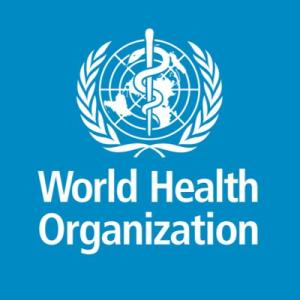WHO launches a new project in Iran to enhance public health and humanitarian assistance to Afghan refugees and vulnerable populations
13 February 2023
WHO, through the financial support of the Government of Japan, has launched a project that aims at amplifying public health and humanitarian assistance to Afghan refugees and vulnerable populations.
13 February 2023 –The World Health Organization (WHO), through the financial support of the Government of Japan, has launched a project that aims at amplifying public health and humanitarian assistance to Afghan refugees and vulnerable populations in the Islamic Republic of Iran in a move toward strengthening universal health coverage globally. The project is implemented in collaboration with the Ministry of Health and Medical Education throughout the year 2023 and will address three priorities: 1) minimizing the risk of epidemic-prone diseases from cross-border movements and in vulnerable communities; 2) increasing timely access to life-saving essential health services across vulnerable areas with a high refugee presence; and 3) providing psychosocial and rehabilitation support to historically neglected groups of people, including refugees.
“In the current complex situation and the shocks received by health system of Iran due to COVID-19, investment on the national health system is the key to protect vulnerable populations and improve access to those in need,” said the WHO Country Representative and Head of Mission in the Islamic Republic of Iran, Dr Syed Jaffar Hussain.
“The generous support from the government of Japan to enhance the scale and scope of health services to vulnerable host communities and refugee population and introducing protective and preventive public health measures in the geographical areas bordering neighbouring countries will go a long way ameliorating the sufferings of refugees and vulnerable host communities. I greatly commend H.E. Kazutoshi Aikawa, the Ambassador of Japan to the Islamic Republic of Iran for facilitating this support from Tokyo”, Dr Hussain added.
“The Government of Japan has supported the people of Iran in the field of health since the beginning of the spread of COVID-19. The support included among others, the provision of advanced medical equipment, totalling over 40 million USD. In addition, the Government of Japan donated about 4.3 million Japan-made AstraZeneca vaccines in total. Japan also has worked hard over many years to help create an environment more conducive to improving the well-being of Afghan refugees and reducing the burden of the Iranian host communities,” said H.E. Kazutoshi Aikawa, the Ambassador of Japan to the Islamic Republic of Iran.
There are pockets of underdeveloped areas across the country, most of which are concentrated in southeastern provinces. These provinces are located in historically poor regions as well as border communities that have been continuously experiencing influxes of Afghan refugees, a phenomenon that has intensified over the past year because of the ongoing humanitarian situation in Afghanistan since August 2021. The Islamic Republic of Iran has been hosting Afghan refugees, and according to the United Nations High Commissioner for Refugees, there are between 3 and 3.5 million Afghans in the country. Nearly one million are considered to be de facto refugees, about half a million have Iranian visas, and the rest are considered to be undocumented.
The funding from Japan aims to improve access to life-saving medical services to the refugees by enhancing the health system’s capacity to accommodate them. To this end, WHO will import the latest medical technologies and essential medicines to provide a comprehensive response to the healthcare needs of populations living in vulnerable areas, including Afghan refugee communities, in Kerman and Sistan and Baluchestan provinces in the Islamic Republic of Iran. The generous financial support comes at a critical time when the country’s health system is in the process of recovering from the COVID-19 pandemic.


